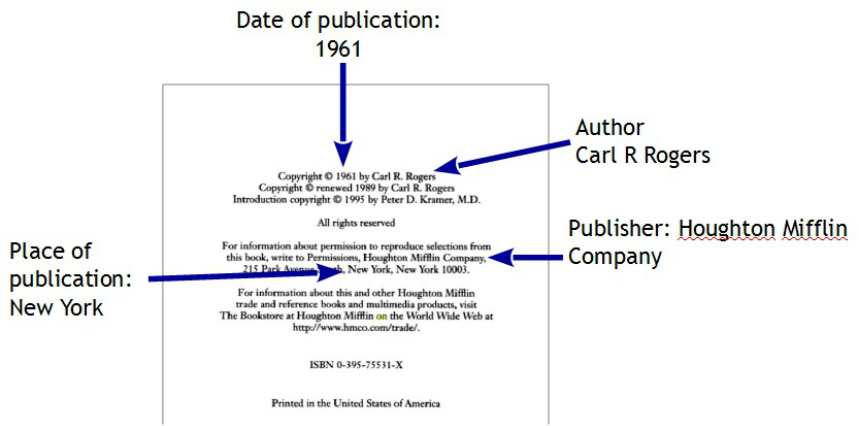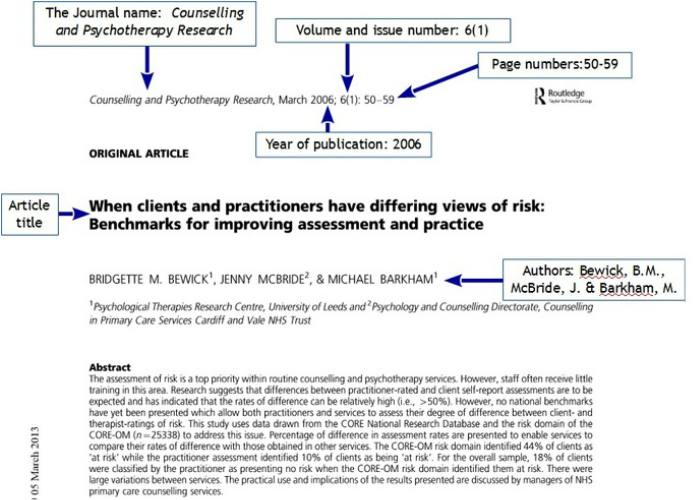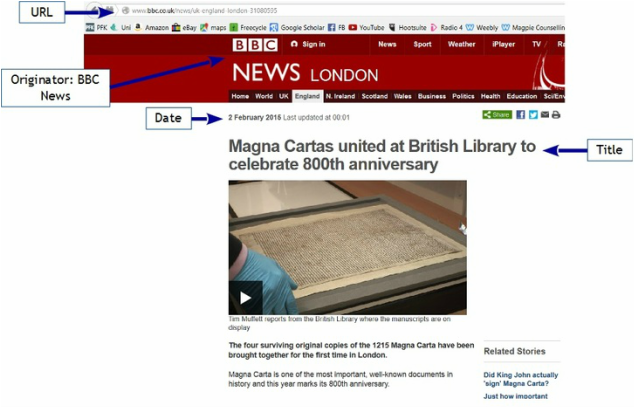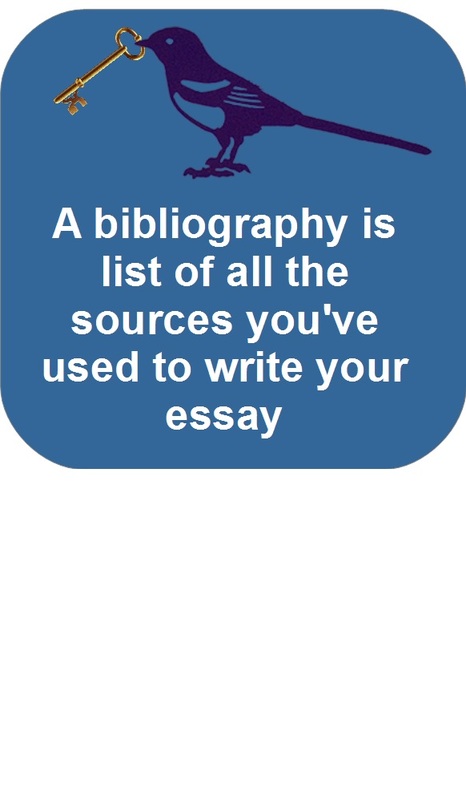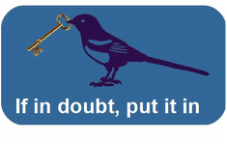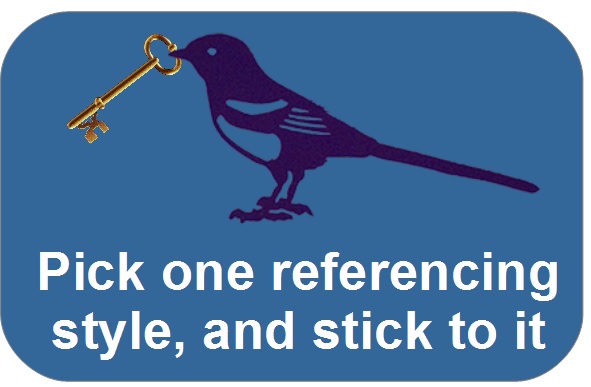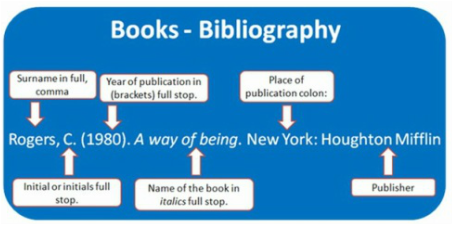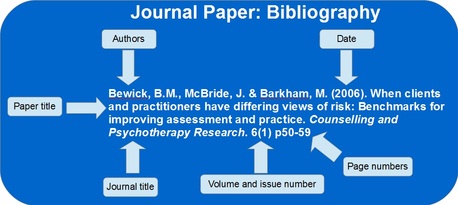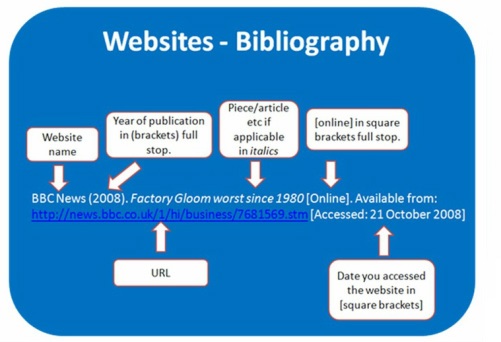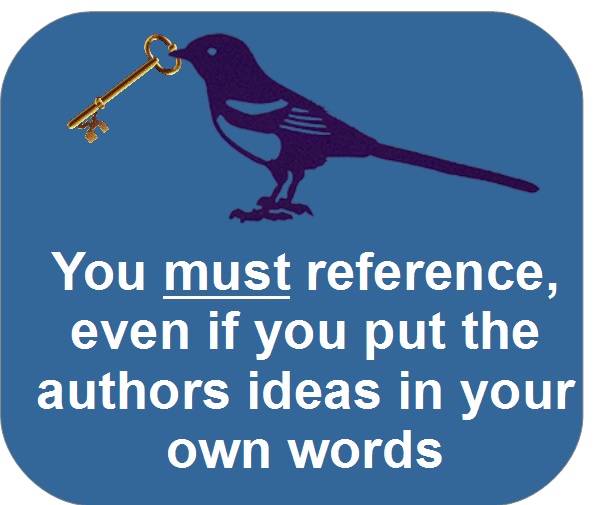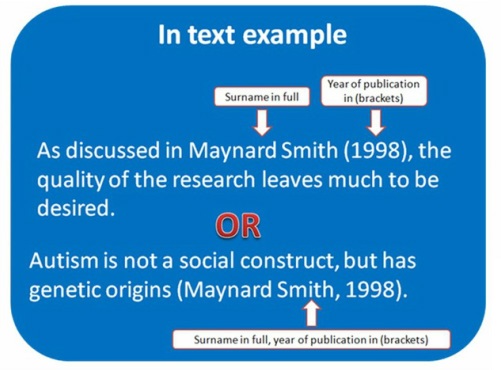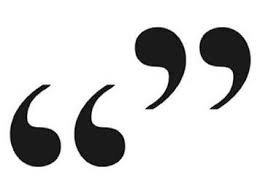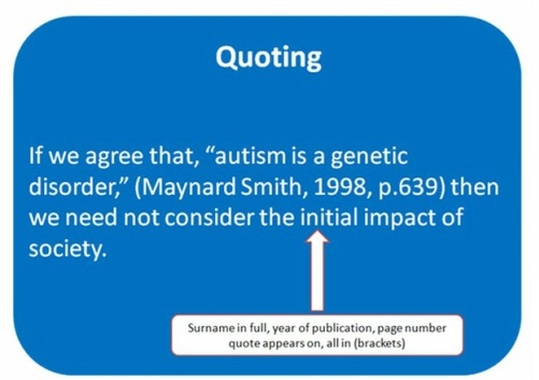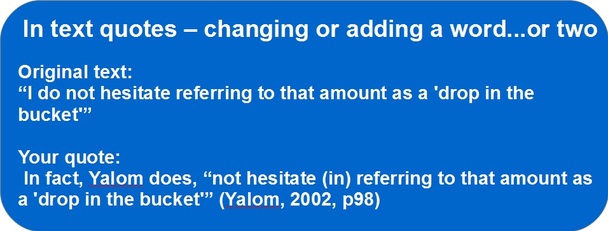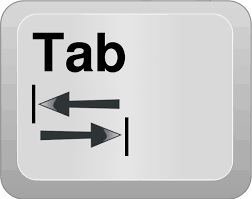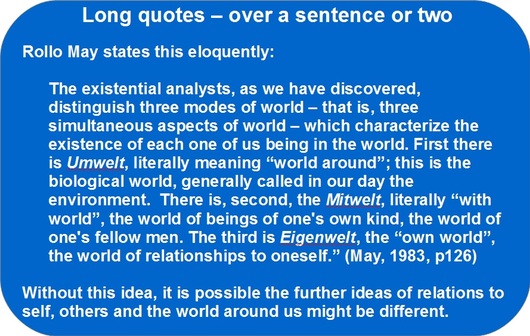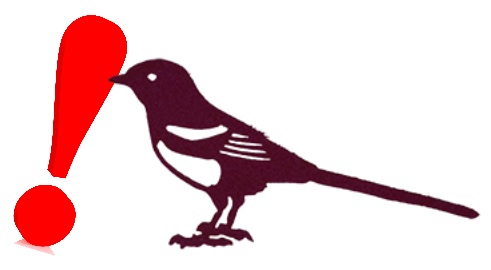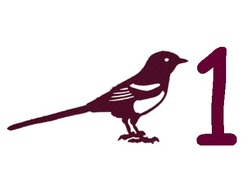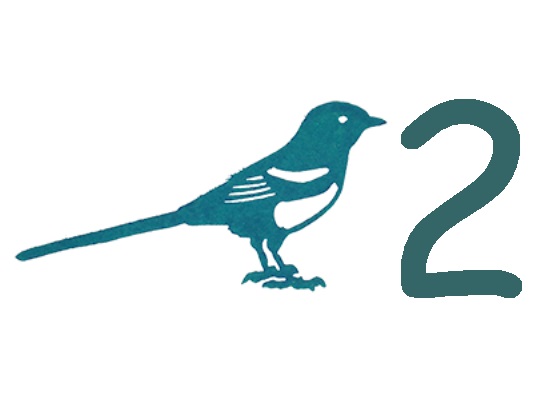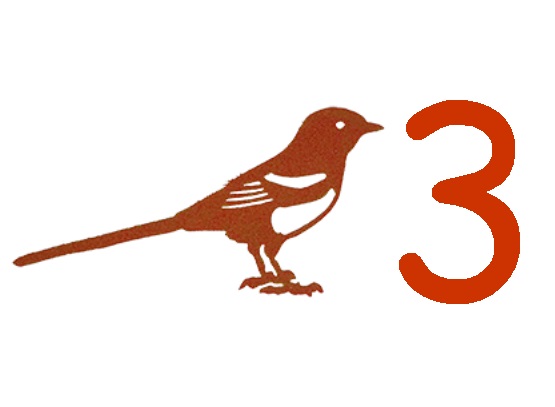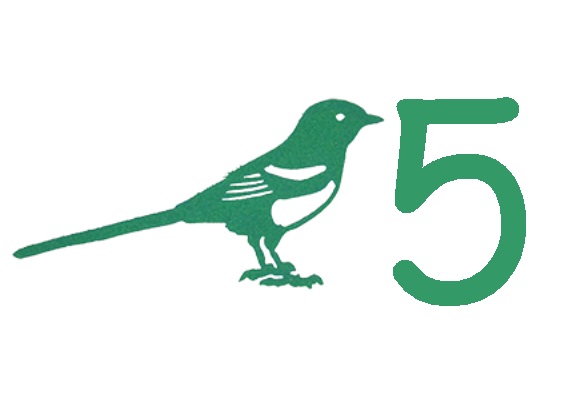Bibliographies and referencing for counsellors
|
|
|
Does the thought of referencing your essay leave you cold? Are you distracted every three lines by the muddle of correctly referencing the brilliant point you've just made? This article will offer a clear guide on how to reference most formats of information, as well as a few hints and tips to stop referencing getting in the way of your best work.
|
Why should I reference?
Put simply, so everyone can see where you got your information from. This is so they can assess the reliability and quality of the work you are relying on to make your points. It's also so they can review the original work for themselves, and see whether you have correctly used the ideas for your paper. If you do a lot of research or writing, you will soon see how frustrating it is when an author doesn't reference correctly and you can't find the original piece they are referring to. It can lead to hours of extra research for you as you try and validate or trash their arguments!
If you are a student, your work will probably be checked for plagiarism. This means taking credit for ideas that aren't your own; cheating. If you don't reference correctly you might look like you are cheating, even if you didn't intend to.
So referencing, even if tedious, is really important. Let's start with where you find the information you need.
If you are a student, your work will probably be checked for plagiarism. This means taking credit for ideas that aren't your own; cheating. If you don't reference correctly you might look like you are cheating, even if you didn't intend to.
So referencing, even if tedious, is really important. Let's start with where you find the information you need.
Find that information
You need to locate the key information for each source. This includes the name or names of the authors, the titles of the source, the date it was published, where it was published and by whom. Phew. Let's start with books. At the front of every book is a imprint page. This is full of boring tiny writing your normally skip straight past. Not anymore; by the time you finish writing your essay or paper, it will be your best friend. Here is the imprint page for Carl Rogers' book, On becoming a person.
You can see all the key information is right there. Don't get confused by all the different copyright dates - the one you want will probably be the earliest one, as this is when the book was first published.
Let's take a look at a journal paper:
Let's take a look at a journal paper:
Again, everything you need, nice and easy. Sometimes it isn't so easy, such as referencing a website. Very often, they won't have a date on them, but search around as they can be on the page somewhere.
So that's where to find most of the key information you are going to need. You will need this data to create your bibliography and reference throughout your essay or paper. Let's take a look at bibliographies first.
Bibliographies
|
What is a bibliography?
It is a list of sources you've used to write your essay, written in alphabetical order. Sources can be anything, but the most common are:
|
|
What do I include in a bibliography?
There is often some confusion over what to include in your bibliography. Maybe you've read something but didn't use any quotes from it, or maybe you formed an idea from reading several different articles, and can't really attribute it to any particular one. Your bibliography should include everything you've used to write your essay, directly or indirectly. My advice is; if in doubt, put it in. You won't get into trouble for putting it in, but you might for leaving it out. |
Referencing
|
Harvard referencing
We are going to look at Harvard referencing, which is a name/date style of referencing used in many universities. It's a pretty simple one to use which gives you all the information you need to locate the original sources. Whichever referencing style you use, make sure you stick to one type only. So how do we reference correctly? There are two main types we'll look at; how to write your bibliography and how to do in-text referencing. Let's look at your bibliography first. |
How to reference in your bibliography
This is a name/date style of referencing, so simply start with the author name, then the date. You write the surname of the author first, a comma, then the initials separated by a full stop. Then put the year in brackets, followed by another full stop. Put the title next. If it is a book, newspaper or online article, put it in italics. If it is a journal paper, leave it plain. After another full stop it changes a little depending on which type of source you have. Have a look at the examples below.
How to do 'in text' referencing
|
Your bibliography goes at the end of your essay or paper. You also need to reference as you go along, right in the text of your piece. This is called in text referencing.
Referencing an idea or argument You might want to talk about a particular author's ideas. You will be paraphrasing their words; using your owns words to describe their idea. How you do this depends on the flow of your text, so see which reads better: |
Sometimes when you quote stuff, if doesn't quite fit in with what you are writing. Maybe the tense is wrong, or it just doesn't quite make sense out of context. You can add a word here or there, as long as it is clear it is your own added in. You do this with brackets:
How to reference just about anything
This should give you a good idea of how to get started with referencing. Don't worry if it starts off feeling complicated and clunky; I've been referencing for years and still have to check how to do it every time I start a new essay. Thankfully, there are many guides out there, and I personally use this one produced by Staffordshire University. It tells you how to reference just about anything - phew. Just before you go, check out the Hints and Tips below. Some of them could help you make molehills out of the mountain of referencing.
Hints and Tips
|
Keep a referencing notebook
If you find a nice quote or idea whilst researching, but aren't sure where to use it yet, jot it down in a notebook or cut and paste it into a word document with a full reference. This will save you time later as you won't be madly leafing through all your research trying to find that quote you just KNOW you read somewhere. You can also end up with a lovely notebook full of the best quotations from your research. I have returned to mine again and again over the years, building up a library of quotes I find useful even now. |
|
Use long quotes with caution
Be honest - are you putting that long quote in to fill up space or because you don't really understand what it means? If so, it'll be really obvious! Your tutor or reader is more interested in your ideas, or your interpretation of others' ideas. Putting huge chunks of other people's writing in can be pretty boring to read, especially as they are probably an expert in the field and have read that quote a million times before. If you really need to do it, make sure you pick apart the quote in your own word afterwards, and use each bit fully. If you find this difficult, you probably need to work further on your understanding, or might find you don't need the whole quote after all. |
|
Keep your bibliography as a separate document
This will make it easier to switch between your essay and your bibliography, instead of having to endlessly scroll down to the end of your essay to add a new reference. In addition, if you submit your work via student plagiarism software you can submit your essay without confusing the systems with your biliography. Getting a really high percentage come out on something like 'Turn it in' can be alarming, until you realise it has counted every single one of your carefully referenced sources... |
That's all for now, do leave your comments or questions below. Happy referencing!
Comment Box is loading comments...



